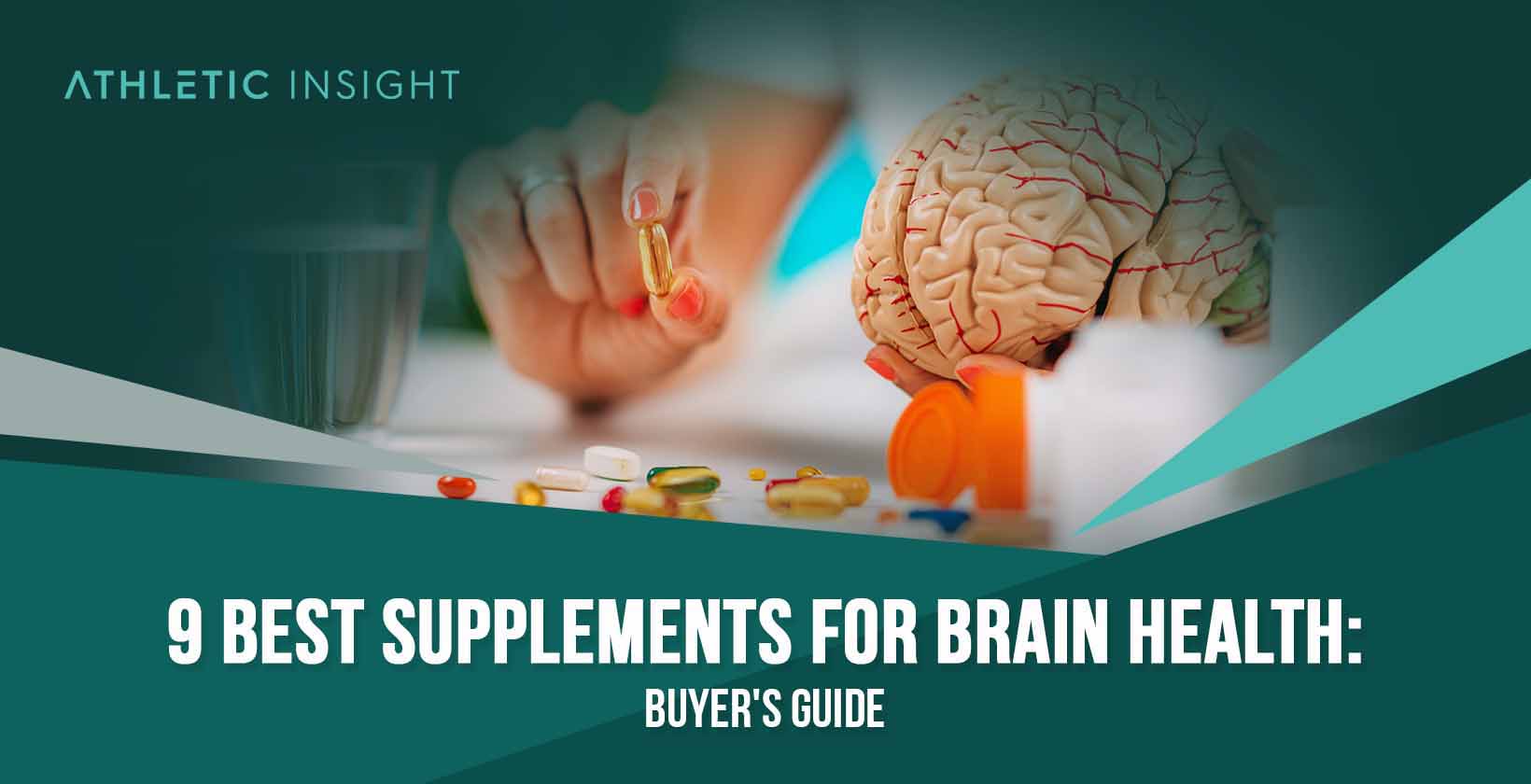Your brain health is of extreme importance due to its central role in almost every aspect of daily functioning, including cognition, memory, emotional regulation, and even coordination. Good brain health facilitates efficient processing of information, problem-solving, and decision-making.
A healthy brain also significantly contributes to one’s quality of life by supporting emotional well-being, social interactions, and resilience against stress. Furthermore, preserving brain health can potentially delay or prevent the onset of neurodegenerative disorders, such as Alzheimer’s and Parkinson’s diseases.
The concept of ‘best supplements for brain health’ hinges on the notion of supporting cognitive functions, mental wellbeing, and neurological health through natural substances. The criteria for these substances often involve their proven effectiveness, safety, affordability, and accessibility.
While comparisons can be intricate due to individual responses to supplementation, general consensus aligns on a few standouts: Fish Oil, Ginkgo Biloba, and Ginseng. While these three are the most frequentyly suggested, there are many others that one should look into as well.
- Fish Oil
- Ginkgo Biloba
- Ginseng
- Vitamin E
- L-theanine
- Curcumin
- B-Vitamins
- Omega-3s
- CDP-Choline
- Caffeine
1. Fish Oil
Fish Oil is a well-regarded supplement known for its high Omega-3 fatty acids content. These essential fats are lauded for their neuroprotective properties, often being linked with improved memory and cognitive performance.
The principal benefits of Fish Oil encompass enhanced brain health, with some studies suggesting a reduced risk of Alzheimer’s disease. However, consumption may lead to minor side effects such as bad breath or gastrointestinal discomfort.
Fish Oil supplements, often taken as capsules, have an abundance of reputable brands. For the best fish oil supplements, stick with Thorne, Nordic Naturals, Nature’s Bounty, and Nutrigold. It’s vital to note that people on blood-thinning medications should consult their healthcare provider before incorporating Fish Oil into their regime. The cost varies but is generally affordable.
2. Ginkgo Biloba
Ginkgo Biloba is a time-honored herb known for its potential to enhance brain function. It primarily works by increasing blood flow to the brain, thereby boosting cognitive functions like memory and focus.
Despite its benefits, Ginkgo Biloba may trigger minor side effects, including digestive issues and headaches. As such, proper usage, generally through oral capsules, is necessary.
Three credible brands include NOW Foods, Nature’s Way, and Thorne. It’s worth noting that individuals taking blood-thinning medications should exercise caution. Costs fluctuate based on concentration and brand, but expect to pay $0.50 per serving.
3. Ginseng
Ginseng, a perennial plant revered in traditional medicine, is increasingly recognized for its cognition-enhancing effects. It’s suggested to improve brain functions such as memory, behavior, and mood.
Ginseng’s benefits are coupled with potential side effects, like insomnia or elevated heart rate, thus, careful usage is advised. Brands like Nature’s Bounty, NOW Foods, and Solgar offer high-quality Ginseng supplements.
Like others on this list, individuals on blood-thinning medication should tread cautiously. Prices vary based on the type and quality of Ginseng. It is recommended to stick with a trusted brand, even if it is more expensive.
4. Vitamin E
Vitamin E, a powerful antioxidant, has gained recognition for its neuroprotective qualities, including slowing cognitive decline. By combating oxidative stress in the brain, it plays a pivotal role in mental health.

The myriad benefits of Vitamin E need to be balanced against potential side effects, notably, an increased risk of bleeding when consumed in high amounts. Some of the trusted Vitamin E supplement brands include Solgar, Nature Made, and Garden of Life.
As with many supplements, those on blood-thinning medications should use Vitamin E with caution. The cost varies based on brand and dosage, but for the best Vitamin E supplements, expect to pay around $0.10 per serving.
5. L-theanine
L-theanine, an amino acid found primarily in tea leaves, is renowned for its unique ability to promote relaxation without causing drowsiness, a characteristic that makes it a popular choice for stress relief and improved cognitive performance.
Despite its benefits, overconsumption of L-theanine may lead to headaches and digestive symptoms. It’s important to maintain proper dosage to avoid potential side effects.
Some popular brands offering L-theanine supplements include Suntheanine, NOW Foods, and Thorne Research. The cost typically falls within an affordable range of $0.33 a serving.
6. Curcumin
Curcumin, the primary active compound in turmeric, is well-known for its potent anti-inflammatory and antioxidant benefits. Emerging research suggests that it may also hold promise in warding off age-related cognitive decline and neurological disorders.
Curcumin is generally safe for use, although it may cause digestive upset in some individuals. Notable brands include BioSchwartz, Qunol, and Nature Made. As Curcumin has a low absorption rate, look for supplements with added piperine for enhanced bioavailability. Prices vary depending on concentration and formulation.
7. B-Vitamins
B-Vitamins, particularly B6, B9 (folate), and B12, are integral for brain health, aiding in everything from neurotransmitter synthesis to homocysteine metabolism, thereby promoting optimal brain function and reducing the risk of cognitive decline.
Although generally safe, excessive intake of certain B-Vitamins can lead to unwanted effects, including nerve damage and neurological problems. Well-regarded brands such as Nature Made, Garden of Life, and Jarrow Formulas offer comprehensive B-Vitamin supplements.
The price range tends to be affordable, but for the best b-vitamin supplements, expect to pay over $0.25 per serving.
8. Omega-3s
Omega-3 fatty acids, particularly DHA and EPA, are essential for brain health, playing a critical role in maintaining the structure and function of brain cells. Their anti-inflammatory and antioxidant properties also contribute to improved cognitive health.

Despite the numerous benefits, some individuals may experience mild side effects, such as fishy breath, digestive upset, or allergies. Leading brands in Omega-3 supplements include Nordic Naturals, Dr Tobias, and Arazo Nutrition.
Remember to store these supplements as recommended to prevent spoilage. Prices can range widely depending on quality and concentration, but the best omega 3 supplements, expect to pay over $1 per serving.
9. CDP-Choline
Citicoline, or CDP-Choline, is a nutrient commonly utilised for its potential to enhance memory and protect the brain from damage. In essence, it supports the production of key neurotransmitters, influencing mood and memory functions.
Excessive use of CDP-Choline may lead to side effects including heartburn, diarrhea, and headaches. Renowned brands like Jarrow Formulas, Double Wood Supplements, and NOW Foods offer quality CDP-Choline supplements.
It’s important to follow recommended dosages and consult a healthcare provider if symptoms persist. The cost of these choline supplements typically falls within a moderate price range.
10. Caffeine
Caffeine, a natural stimulant most commonly found in tea and coffee, is known for its ability to stimulate the central nervous system, improving alertness, and cognitive performance. It’s also suggested that caffeine may enhance memory in certain tasks.

Side effects of caffeine can include insomnia, nervousness, and increased heart rate, particularly at high doses. Notable brands offering caffeine supplements include ProLab, Nutricost, and Zhou Nutrition. It’s recommended to carefully monitor your caffeine intake to avoid potential side effects. Prices tend to be affordable.
What are Brain Health Supplements?
Brain health supplements, often referred to as nootropics, are a class of substances, both synthetic and natural, designed to enhance cognitive function, improve memory, creativity, or motivation, and protect the brain from damage and age-related cognitive decline. These supplements can include a variety of ingredients, from vitamins and minerals to herbs and amino acids.
What Do Brain Health Supplements Do?
Brain health supplements aim to boost various aspects of mental function. Depending on their specific ingredients, they may serve to increase focus, memory, mood, creativity, or motivation. Some supplements provide essential nutrients for brain health, while others may help increase blood flow to the brain or protect it from oxidative stress.
What are the Benefits of Brain Health Supplements?
Brain health supplements confer a panoply of benefits when used appropriately. They are often designed to support cognitive function, memory, and concentration.
Some substances can enhance neuroplasticity, the brain’s ability to form and reorganize synaptic connections, thereby boosting learning and memory processes. Others might offer neuroprotective effects, shielding the brain from age-related cognitive decline or neurological disorders. Specific supplements can reduce mental fatigue, heightening focus and productivity.
What are the Risks of Taking Brain Health Supplements?
Despite the potential advantages, brain health supplements do carry certain risks. For some individuals, these supplements can induce side effects ranging from mild (like headaches or digestive upset) to more severe reactions (such as allergic responses).
There’s also a risk of interaction with prescribed medications, which can alter the effectiveness of either substance. Furthermore, the industry’s regulatory oversight isn’t as robust as that for pharmaceuticals, which may raise concerns about product quality and reliability. It is, therefore, recommended to consult with a healthcare provider before starting any new supplement regimen.
How to Choose the Best Brain Health Supplements?
Selecting the best brain health supplement involves several considerations such as efficacy, safety, quality, and cost.
- Efficacy: Examine scientific evidence supporting the supplement’s benefits. Research studies and trials can provide valuable insights into the supplement’s effectiveness.
- Safety: Consider any potential side effects and interactions. Make sure to follow recommended dosages to minimize the risk of adverse effects.
- Quality: Opt for reputable brands that prioritize product purity and quality. Look for products that are tested by third-party labs for contaminants and consistency.
- Cost: Compare prices among brands and consider the cost per dose rather than just the overall price. Some supplements might be more expensive but also more concentrated, meaning they could last longer and possibly be more effective.
Who can take Brain Health Supplements?
Adults in good health can consider taking brain health supplements. They are useful for individuals facing high cognitive demands, such as students or professionals, as well as those looking to protect their brain health as they age. However, individuals with pre-existing medical conditions, those on medication, or pregnant or breastfeeding women should consult a healthcare provider before starting any new supplement regimen.
Is a Prescription Required when buying Brain Health Supplements?
No, most brain health supplements can be purchased over the counter without a prescription. However, it is important to remember that even though a prescription may not be required, these supplements can still have potent effects and interact with other medications. Thus, a conversation with a healthcare provider is advisable before starting any new supplement regimen.



